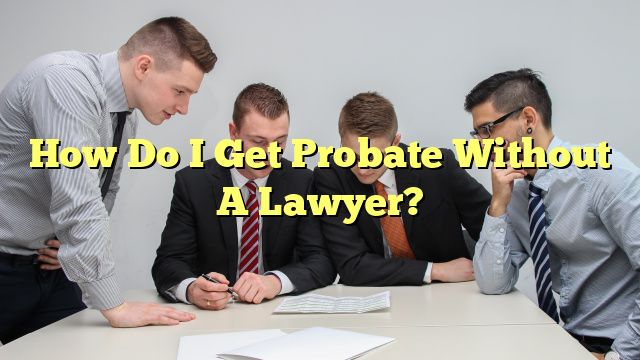Table of Contents
- Can I File Probate Myself in Florida?
- What is the Cost of Probate in California?
- Is There a Time Limit to File Probate in California?
- Is There a Way to Get Around Probate?
How Do I Get Probate Without a Lawyer?
Getting probate without a lawyer is possible in many cases, but it is a complicated process that involves filing documents with the court and dealing with the deceased person’s estate. It is important to understand the laws and procedures regarding probate in your state and to make sure that you are following them correctly. In this article, we will discuss how to get probate without a lawyer and answer some common questions about the process.
Can I File Probate Myself in Florida?
In Florida, anyone can file for probate without a lawyer. This means that if you are the personal representative or an heir to an estate, you can file documents with the court and handle the probate process without incurring the cost of a lawyer. Florida has a comprehensive online system that provides step-by-step instructions on how to file the necessary documents; however, if you are unsure or have questions, it is always a good idea to consult a lawyer.
What is the Cost of Probate in California?
The cost of probate in California is determined by the size of the estate and the type of probate that is being sought. For example, a Summary Probate will cost approximately $2,500 and a Formal Probate will cost up to $20,000. In addition, there may be other costs such as filing fees, appraisal fees, and court costs that will need to be paid.
Is There a Time Limit to File Probate in California?
The time limit to file probate in California is generally four years from the date of the decedent’s death. This time limit is established by the California Probate Code and is strictly enforced by the courts. It is important to note that the four-year time limit may be extended in certain circumstances such as if the decedent’s assets are not located within the four-year time limit.
Is There a Way to Get Around Probate?
There are a few ways to get around probate, but it is important to note that these options are not available in all states. In some states, it is possible to transfer certain assets directly to heirs without going through the probate process. This is known as “non-probate” transfer and includes assets that are held in joint tenancy, payable-on-death accounts, and trusts. It is important to note that non-probate transfers are not always the best option, as they can result in tax implications for the heirs.
For those who do not want to go through the probate process, it is also possible to give away assets before death. This is known as “gifting” and can be done in a number of ways including through trusts, joint tenancy, or as a gift to a charitable organization. Gifts must be done intentionally and with consideration of any tax implications.
Finally, it is important to note that there are some states that do not require probate if the estate is small or if the assets are held in joint tenancy. If you are unsure about the probate laws in your state, it is best to consult a lawyer.
Getting probate without a lawyer is possible in many cases, but it is important to understand the laws and procedures in your state and make sure that you are following them correctly. There are a few ways to get around probate, but it is important to consider any tax implications before doing so. It is also important to note that there is a time limit to file probate in most states, so it is best to file as soon as possible.

